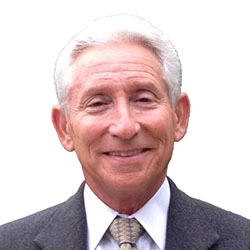 Four-time Grand Slam champion Naomi Osaka stunned the tennis and wider sporting world when she chose to withdraw from the French Open. The bold decision came on the heels of being fined $15,000 and threatened with expulsion by the tournament’s officials, after Osaka announced she would not participate in press conferences during the tournament. A decision she said was taken to protect her mental well-being after suffering from bouts of anxiety and depression since her first Grand Slam win in 2018.
Four-time Grand Slam champion Naomi Osaka stunned the tennis and wider sporting world when she chose to withdraw from the French Open. The bold decision came on the heels of being fined $15,000 and threatened with expulsion by the tournament’s officials, after Osaka announced she would not participate in press conferences during the tournament. A decision she said was taken to protect her mental well-being after suffering from bouts of anxiety and depression since her first Grand Slam win in 2018.
The remarkable decision to withdraw rather than face what many believe to be “a part of the job” coupled with the punitive response by the French Open officials has raised the issue of mental health in sports.
Is the treatment of mental health challenges in sports still leagues behind the treatment of physical injuries?
Physical injuries are considered a staple within sports. Athletic organizations have systems in place dedicated to rehabilitating and preventing physical injuries. From expert physiotherapists and state of the art facilities, an athlete’s physical health is treated with the utmost regard. Leagues such as the National Basketball Association (NBA) have implemented further measures to avoid injuries before they occur. Known as “DNP-Rest”, this recent feature within the basketball league allows a healthy player to sit out games in order to properly rest and avoid injuries.
When an elite athlete suffers a physical injury there is a rehabilitation process involved to bring them back to peak condition. Although the process varies across sporting organizations, injuries generally involve diagnosis, treatment, and recovery plans. The injured athlete receives a range of support; care is provided by coaches, physicians, physiotherapists, and other training staff. At the end of recovery, the athlete must be cleared by a professional before they can return. Although sports and fitness experts have placed emphasis on the importance of psychology and mental strength in rehabilitating physical injuries, mental health issues of athletes usually do not receive the same meticulous attention paid to the athletes’ physical condition.
Athletes seldomly address mental health struggles because of the stigma attached.
Mental health issues affect up to 35% of professional athletes, at the collegiate level, nearly 25% of athletes report struggling with mental challenges. Although statistics show that athletes may be more likely to struggle with mental health, the significant rate at which athletes are affected out paces the rate at which treatment is sought and resources are available.
Unlike recuperating from a physical injury, when faced with mental health challenges, athletes are usually charged with the responsibility of recovering. They are normally expected to handle the scrutiny, pressure to perform and intense schedules with resilience and determination.
A step in the right direction.
In a field where the number one barrier to mental wellbeing is the stigma associated with expressing mental struggles, Osaka’s stance can not only be regarded as courageous, but also a positive step in the right direction of shedding light on mental challenges. In recent years, with other athletes such as Serena Williams, Michael Phelps and Kevin Love becoming more vocal about their mental health struggles, the importance of mental well-being in the sporting arena has garnered more attention.
Progressive moves by some sporting organizations, such as the Association of Tennis Professionals (ATP), Major League Baseball (MLB) and the NBA, who have employed mental health professionals and implemented mental wellness programs, suggest that athletes’ mental health issues are finally being given the necessary attention and support.
The importance of mental health has not reached every sporting organization.
Other professional athletes such as Women's National Basketball Association (WNBA) player Liz Cambage have importantly called for mental health programs to be ubiquitous within sports. Cambage has had to rely on DNP-Rest when handling mental challenges as the mental wellness measures taken by the NBA were not implemented within the WNBA. Cambage who suffers from depression and anxiety has described recovering from mental health issues as “rehabbing an injury like any other”.
As mental health issues become more prominent in sports, there is hope that sporting organizations will find a balance that protects both an athlete’s physical and mental health.
Mental Health has Won Gold at the Tokyo Olympics
8.3.21 Update:
Since this article was first published, the issue of mental health has once again taken center stage. This time, on one of the biggest stages in sports. Simone Biles, the greatest gymnast of all time, chose to step away from competing in the women’s gymnastics all-around team and individual finals at the 2020 Tokyo Olympics for mental health reasons. This came after Biles suffered an uncharacteristic tumble during a vault dismount. Later, the athlete described experiencing the “twisties”, a phenomenon in the gymnastics world where a gymnast is unaware of their position while twisting in the air.
The twisties can be very dangerous, without knowing their body’s position in the air, the athlete’s ability to dismount and land safely is significantly diminished. While Biles remained physically uninjured from this mishap, she immediately recognized that the issue was not physical but mental.
“I say put mental health first”
Simone’s decision not to compete showed a great level of maturity and bravery. Importantly, she had the support of Team USA and the International Gymnastics Federation (IGF) who ensured that she had the psychological assistance necessary to recover. This came in the form of two sessions with Team USA’s sports psychologists to cope with the reality of not competing and IGF doctors ensuring she was cleared to compete. Biles was finally cleared to compete for the women’s gymnastics beam finals, where she successfully secured the bronze Olympic medal.
Like Naomi Osaka, Simone Biles has garnered awareness and propelled mental health and wellness in the sporting world. Her ability to return center stage and medal, further highlights the importance of taking the time to ensure that both mental and physical health align when competing.

